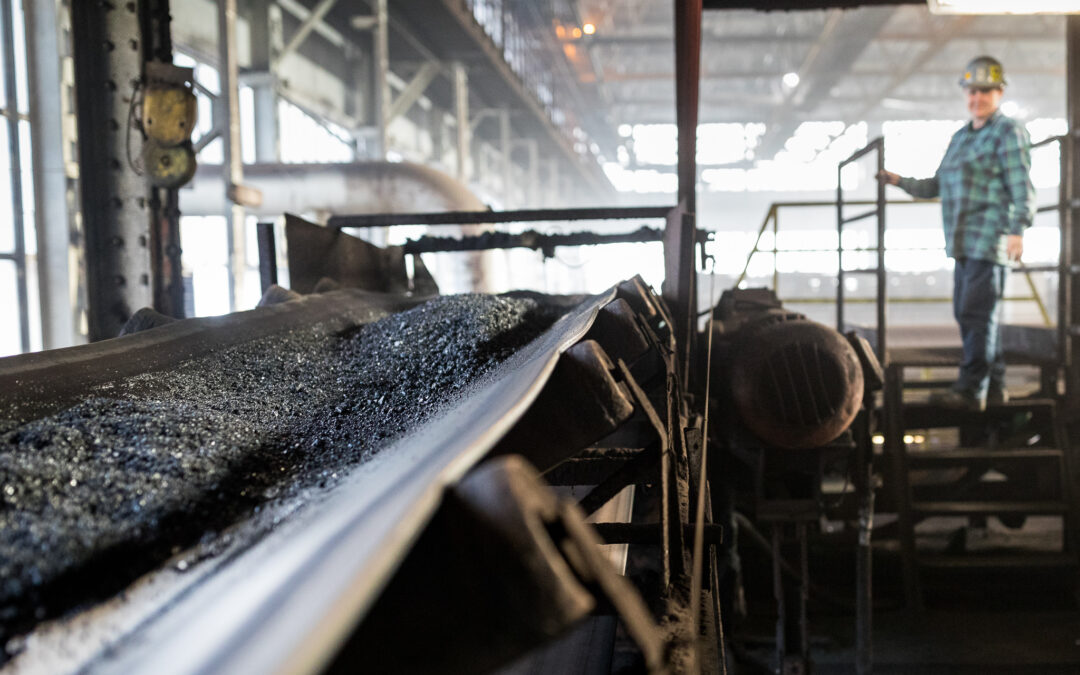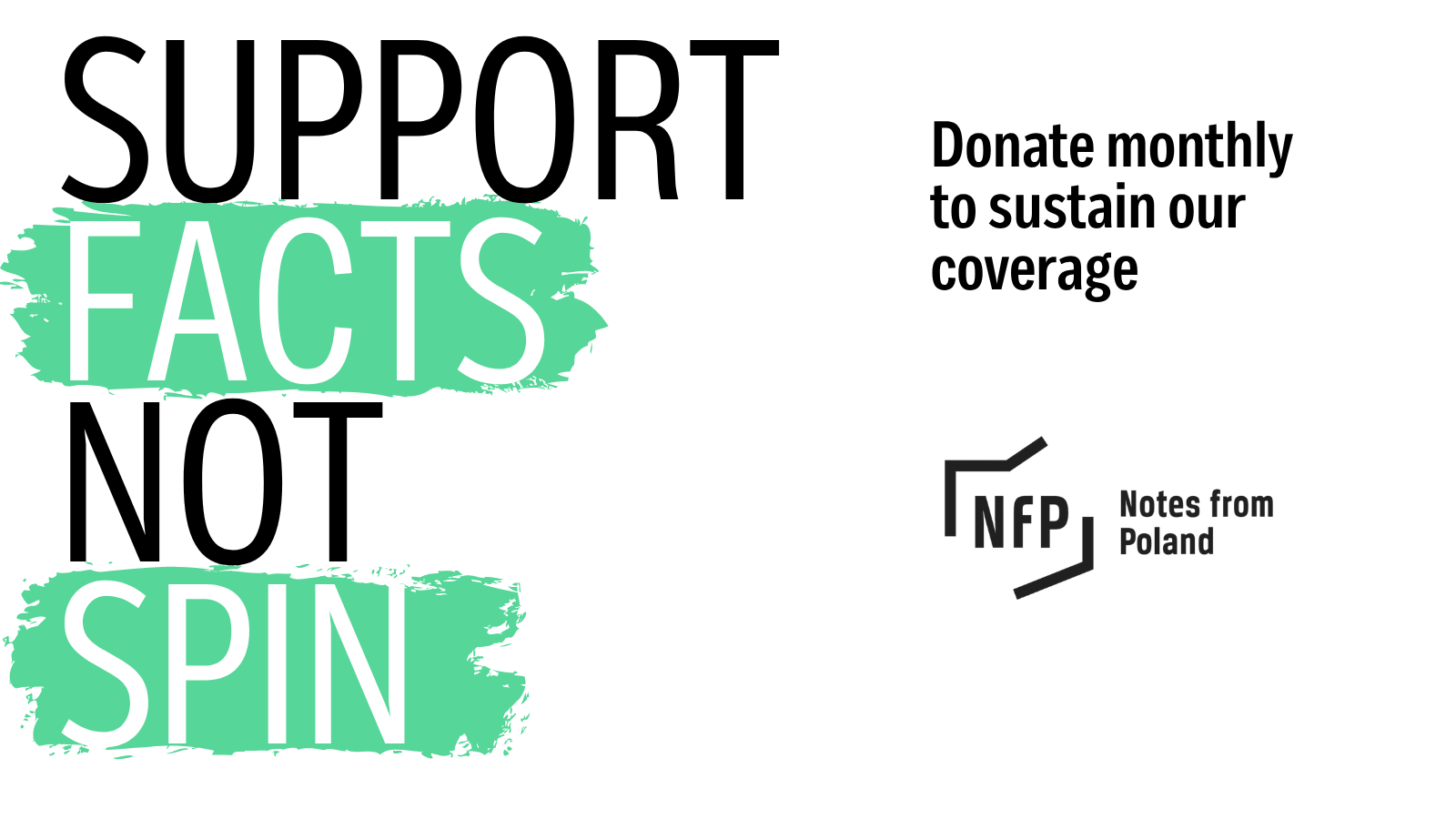Keep our news free from ads and paywalls by making a donation to support our work!

Notes from Poland is run by a small editorial team and is published by an independent, non-profit foundation that is funded through donations from our readers. We cannot do what we do without your support.
Poland’s government has approved a bill intended to support the transition away from coal by allowing mines to be closed down more easily, introducing financial support for miners who lose their jobs, and helping redevelop former mining areas.
“This is a specific response to the challenges of the energy transition and provides real support for thousands of miners,” said energy minister Miłosz Motyka. “We want the process of change to be carried out responsibly, with respect for local communities.”
Poland is Europe’s most coal-dependent country, with the fossil fuel accounting for 57% of power generation last year. While there has been a gradual shift away from coal, this has been accompanied by concerns about the impact it will have on coal-mining regions.
Motyka says that the newly proposed measures – which must still be approved by parliament and the president – “pave the way for a just transition in mining regions”, providing “a stimulus for investment and development, and the creation of new jobs”.
Rada Ministrów przyjęła projekt nowelizacji ustawy o funkcjonowaniu górnictwa węgla kamiennego. Ustawa umożliwi samodzielną likwidację kopalń przez spółki górnicze, ograniczy dopłaty do funkcjonowania kopalń oraz wprowadzi pakiet świadczeń osłonowych dla pracowników. pic.twitter.com/3AhfFUCuc7
— Ministerstwo Energii (@ME_GOV_PL) October 28, 2025
The legislation would allow mining companies to decommission mines independently but with state financial backing. They can also transfer such assets as donations to local authorities or state entities, allowing them to be used for investments, revitalisation projects or infrastructure construction.
The bill would also introduce a package of protective benefits for workers at companies that are closing mines, including severance payments of 170,000 zloty (€40,000)
The proposed law would also introduce rules to prevent state subsidies for reducing production capacity from being used mainly to cover mining companies’ operating costs instead of cutting output, reports news service WNP.
While the government has a majority in parliament, the bill could face a veto from opposition-aligned President Karol Nawrocki, who during his campaign for this year’s elections called coal “black gold” and pledged to ensure that Poland continues to produce “cheap energy from coal” mined domestically.
Poland’s mining sector has been struggling in recent years. Polish coal is among the most expensive in the world to get out of the ground. Burning it causes a lot of emissions that bring costs under the EU Emissions Trading System.
Newly released Eurostat data show that Polish households have the EU’s third-most expensive electricity, when taking countries’ costs of living into account.
But Poland’s coal industry – with its long history and powerful unions – has long enjoyed political influence and public support. It is propped up by the state: to the tune of 9 billion zloty this year and an estimated 5.5 billion in 2026.
According to the energy ministry’s impact assessment, the cost of closing hard coal mines under the new bill over the next decade will reach 11.3 billion zloty.
Polish coal is costly and polluting. But its powerful symbolism has kept the country and its politicians hooked on the "black gold".@AlicjaPtak4 explores coal’s past, present and future in Poland https://t.co/E6IhQ64aGC
— Notes from Poland 🇵🇱 (@notesfrompoland) August 14, 2025
Jastrzębska Spółka Węglowa (JSW), which is the EU’s largest producer of coking coal, has made headlines recently after the company reported that, in the first half of the year, it recorded a loss of over 2 billion zloty.
That followed a record loss of 7.3 billion zloty last year and raised further concerns about JWS’s financial viability and the potential need for further state support.
Some state-owned power producers are already cutting their reliance on coal by offering generous severance packages to workers.
Last week, a subsidiary of state-controlled utility PGE, the country’s largest electricity producer, reached an agreement with trade unions to close one of its coal-fired power plants, offering €59 million compensation package to workers.
A Polish state energy firm has agreed a 250 million zloty (€59 million) compensation package with trade unions at a coal-fired power plant that will shut down next year.
Workers will receive severance payments of up to 400,000 zloty (€94,450) each https://t.co/iAdxLpsHxl
— Notes from Poland 🇵🇱 (@notesfrompoland) October 28, 2025

Notes from Poland is run by a small editorial team and published by an independent, non-profit foundation that is funded through donations from our readers. We cannot do what we do without your support.
Main image credit: JSW (press materials)

Alicja Ptak is deputy editor-in-chief of Notes from Poland and a multimedia journalist. She has written for Clean Energy Wire and The Times, and she hosts her own podcast, The Warsaw Wire, on Poland’s economy and energy sector. She previously worked for Reuters.




















